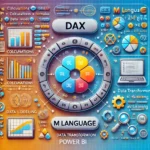Arch Linux vs. Visual Studio Code: Which Is Right for You?
When it comes to optimizing your development workflow, two key decisions stand out: your choice of operating system and code editor. In this blog post, we will conduct a thorough comparison between two popular options – Arch Linux and Visual Studio Code (VS Code). We will assess their respective strengths and weaknesses to help you determine the ideal combination for your unique needs.
Arch Linux: The Art of Customization
VS Code: A Swiss Army Knife for Coders
Before we delve into the comparison, let’s take a moment to familiarize ourselves with both Arch Linux and VS Code.
Arch Linux
Arch Linux is renowned for its lightweight nature and remarkable customizability. It adheres to the KISS (Keep It Simple, Stupid) philosophy, providing users with a minimal foundation and empowering them to install and configure components as they see fit. The Pacman package manager facilitates effortless software package management.
Visual Studio Code (VS Code)
Visual Studio Code, or VS Code for short, stands as a free, open-source code editor developed by Microsoft. Its appeal lies in its versatility, adaptability, and an expansive extension marketplace catering to an array of programming languages and development requirements. VS Code is known for its user-friendly interface, a testament to its accessibility for both novice and seasoned developers.
https://synapsefabric.com/2023/09/02/arch-linux-vs-manjaro-choosing-the-right-linux-distribution/
Comparison Table
To better comprehend the strengths and weaknesses of Arch Linux and VS Code, let’s break down the comparison across several dimensions:
| Aspect | Arch Linux | VS Code |
|---|---|---|
| Installation and Setup | Requires manual installation and configuration. | Easy installation via package manager. |
| Customization | Highly customizable, tailor your system from scratch. | Highly customizable with extensions. |
| Resource Usage | Minimal resource footprint; efficient performance. | Moderately resource-intensive. |
| Package Management | Pacman package manager for easy software management. | Extensions marketplace for added functionality. |
| Development Ecosystem | Wide range of development tools and libraries. | Supports numerous programming languages. |
| Community Support | Active and helpful community; extensive documentation. | Strong community support; vast online resources. |
| Updates and Stability | Rolling release model; frequent updates. | Regular updates with good stability. |
| Ease of Use | Requires Linux knowledge; not beginner-friendly. | User-friendly with an intuitive interface. |
| Performance | Efficient and lightweight, ideal for older hardware. | Responsive but can be resource-intensive. |
| Security | High degree of control over system security. | Relies on underlying OS security measures. |
| Cost | Free and open-source; no licensing fees. | Free and open-source; some paid extensions. |
Use Cases
- Choose Arch Linux If:
- You lean towards a minimalistic, deeply customized operating system.
- Your experience with Linux is considerable, and you enjoy fine-tuning your system.
- High-performance, particularly on older hardware, is a priority.
- Choose VS Code If:
- You seek a versatile and user-friendly code editor.
- Support for various programming languages and development tools is essential.
- You appreciate a thriving ecosystem of extensions and plugins.
Conclusion
In the Arch Linux vs. VS Code comparison, it’s vital to acknowledge that these tools serve distinct purposes. Arch Linux is an operating system, while VS Code is a code editor. Your choice should be driven by your specific needs and preferences.
For seasoned Linux users who value control and customization, Arch Linux can be an excellent choice. Conversely, if you desire a robust code editor with a wealth of extensions, Visual Studio Code may better suit your needs.
Ultimately, an optimal combination could involve using Arch Linux as your development environment while running Visual Studio Code as your code editor. This hybrid approach allows you to harness the benefits of both customization and a feature-rich coding experience.
Bear in mind that the best tools for your workflow are those that bolster your efficiency and effectiveness. Therefore, choose wisely, aligning your decision with your unique requirements.






